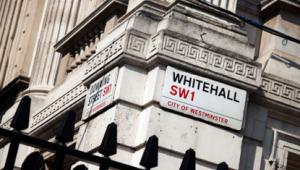By Mark Smulian | 24 September 2013
NHS Employers has called on pay review bodies to recommend freezing the service’s salary scales next year.
It said that increasing pay by 1% would cost the service an ‘unaffordable’ £500m, which would put jobs at risk.
Average earnings in the NHS have continued to increase because of the widespread use of incremental pay rises, the employers said.
NHS Employers chief executive Dean Royles said: ‘NHS pay is already competitive and increasing year on year for most staff.
‘We have been listening to employers and they tell us that money in the NHS is very tight, while they are doing everything they can to retain staff and increase quality.
‘I would love it if we could increase pay for our incredibly hard-working staff. As employers, we want them to feel valued and recognise that months of negative publicity have left them feeling battered and bruised’
Royles said the £500m cost of a 1% rise would be the equivalent of the salaries of more than 15,000 nurses or almost 5,000 consultant doctors.
‘A pay increase is not appropriate this year,’ he said. ‘If the pay review is minded to increase pay, we have asked that this be deferred to facilitate pay reform and support negotiations on terms and conditions rather than adding it directly to pay scales.’
According to NHS Employers, average pay in the service in 2012 was £30,564 for a nurse, £109,651 for a consultant, £47,702 for a manager and £36,130 for a qualified paramedic, in all cases including basic pay plus additions such as overtime.
It said pay remained attractive and competitive and NHS recruitment and retention was stable except for some specialist groups such as accident and emergency doctors, among whom there was a labour shortage, which could not be solved by increasing pay rates.
Meanwhile, the Unite trade union has called for an annual pay rise for NHS workers on a cash rather than percentage basis.
Unite’s head of health Rachael Maskell said: ‘We believe that a bottom loaded flat rate increase would be the best way to help lower paid NHS workers combat the 15% pay cut in real terms they have endured since 2010.
‘The idea behind the flat rate increase is that the rise in the price of a loaf of bread is the same whether you are a trust chief executive or a cleaner, and therefore why should the chief get a pay increase more than 10 times that of the cleaner, as would be the case it you have a percentage increase.’






















